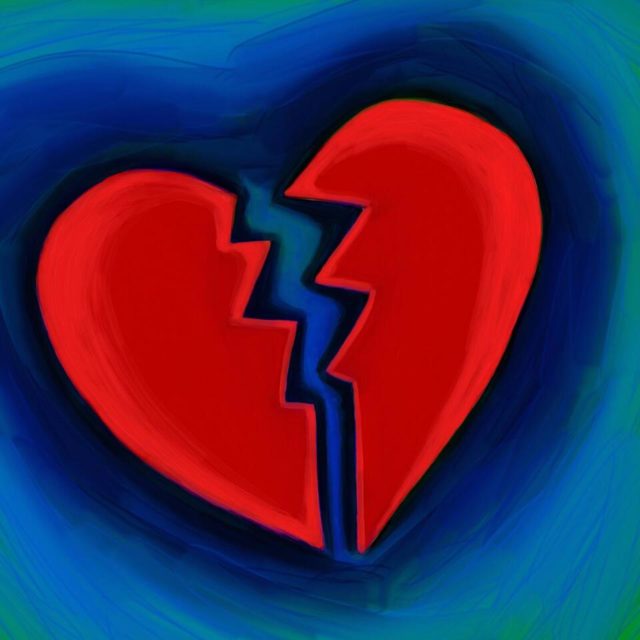“Broken heart syndrome”, otherwise known as stress cardiomyopathy, has increased fourfold in South Africa and across the globe since the start of the Covid-19 pandemic
A LACK of contact with friends and family during the Covid-19 pandemic has seemingly had a disastrous impact on the health of South Africans.
While lockdown restrictions have eased, the impact of having to stay away from friends and family for a lengthy period has given rise to a rare heart condition called “broken heart” syndrome.
“Broken heart syndrome”, otherwise known as stress cardiomyopathy, has increased fourfold in South Africa and across the globe since the start of the Covid-19 pandemic, according to a study published by researchers at the Cleveland Clinic in Ohio in the US.
While stress cardiomyopathy had been an extremely rare condition in South Africa before the pandemic, the lockdown has seen the number of cases surge drastically.
Nicole Jennings, spokesperson for medicine provider Pharma Dynamics, said researchers suspect it may have to do with the major change that society has had to make.
“While public health regulations are there for our protection, it’s abnormal for human beings to wear masks, social distance and not see friends and loved ones for months on end.
“Isolating ourselves to such a degree can also cause extreme loneliness and depression, which could put extra strain on one’s heart.”
The pandemic has also caused underlying stress and fear. “It has likely interfered with our sleeping and eating patterns and has made it more difficult to concentrate, and could even worsen chronic health or mental health conditions. The longer the pandemic, the higher the likelihood of substance abuse as well.”
The impact of the pandemic on the economy has been devastating. “Many have lost their jobs or had to make salary sacrifices. It’s an anxious time and many feel overwhelmed and uncertain about the future, which can lead to strong emotions. These factors all increase the risk of broken heart syndrome.”
Broken heart syndrome is normally triggered by severe stress and extreme emotions, such as having to deal with the sudden loss of a loved one, divorce or a major financial loss. “The unexpected rush of adrenaline weakens the heart muscle, causing irregular heart rhythms. It also interferes with the pumping function of the heart, causing a ballooning effect.
“Sufferers may experience sudden chest pain and shortness of breath – similar to a heart attack – but fortunately in most cases its effect is temporary. The condition usually reverses itself within a few days or weeks.”
While most recover from broken heart syndrome without any long-term effects, 10% become critically ill and in 1% to 2% of cases it can be fatal.
“The pandemic has caused severe psychological, social and economic stress in people’s lives all over the world. The research done by those in the US has given us a glimpse into the broader impact that Covid-19 has had – not only on those with pre-existing health conditions, but also the broader population,” said Jennings.
Risk factors include age, a history of a neurological condition such as epilepsy, or a previous or existing psychiatric disorder, such as depression and anxiety.
Other symptoms include, arrhythmia (irregular heartbeat), cardiogenic shock, fainting and low blood pressure.
Joburg doctor Hemant Makan isn’t surprised by the study’s results. “This is a condition that is triggered by significant emotional or physical stress in which people develop chest pains and present similarly to someone having a heart attack.
“They may have abnormal laboratory results and electrocardiograms, however, when they undergo an angiogram there is no significant blockage of the arteries that supply the heart. Many people, especially the elderly, feel isolated and lonely, with resultant stress and anxiety. Any further stressful situation can result in a cardiac event.”
The pandemic, he said, had been emotionally strenuous, which could potentially have a direct impact on the body’s most vital organ. “In South Africa, cardiomyopathy is common. However, these events are caused by other underlying medical conditions. Stress cardiomyopathy is uncommon.”
Makan recommends various measures to lessen the risk of “broken heart” syndrome. “It’s important that measures to improve self-care are undertaken. One needs to be active and undertake an exercise routine. It’s recommended that one exercises at least 30 minutes daily. There are many relaxation techniques to decrease stress.
“Yoga, meditation and performing breathing exercises have shown benefit. It’s also important to eat healthily and get adequate sleep. If one is still not coping, it is advised to see a health-care provider.”








